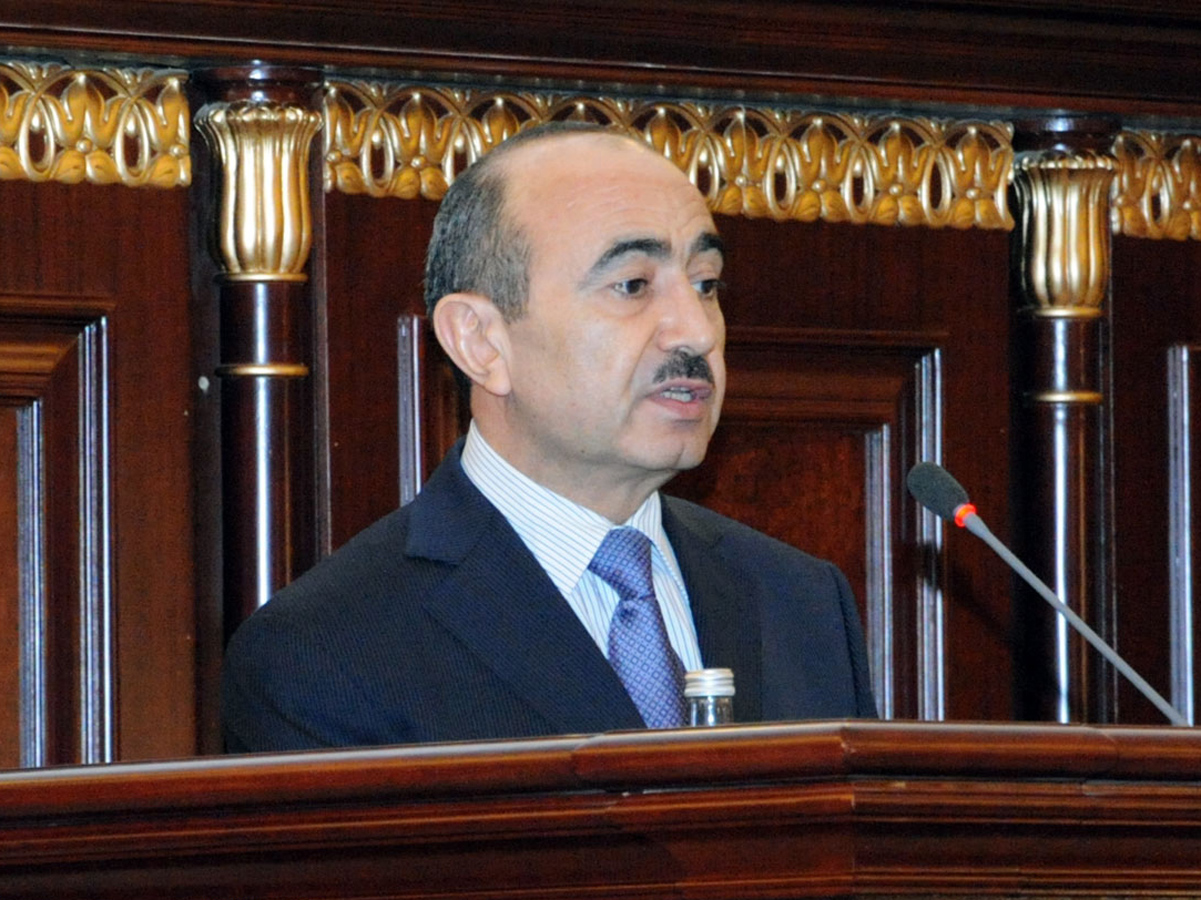Baku, Azerbaijan, June 16
By Elchin Mehdiyev - Trend:
Ensuring human rights and freedoms, a decent standard of life of citizens are the highest goals of Azerbaijani state, said Ali Hasanov, the Azerbaijani president's aide for public and political affairs.
He made the remarks June 16 during the hearings in the Milli Majlis (Parliament) of Azerbaijan dedicated to the Human Rights Day in the country.
Independence means not only realization of Azerbaijani people's aspirations regarding statehood, but also an opportunity to secure human rights and freedoms, Hasanov added.
"In early years of Azerbaijan's independence, the country saw massive human rights violations," he said. "Armenia made territorial claims against Azerbaijan and with the help of its patrons occupied the country's Nagorno-Karabakh region and seven surrounding districts."
"Thus, more than one million people became refugees and IDPs," Hasanov noted. "Unfortunately, a number of international organizations and states speaking under the slogan of human rights give no assessment to such a gross violation of the rights of more than one million citizens."
The conflict between the two South Caucasus countries began in 1988 when Armenia made territorial claims against Azerbaijan. As a result of the ensuing war, in 1992 Armenian armed forces occupied 20 percent of Azerbaijan, including the Nagorno-Karabakh region and seven surrounding districts. The 1994 ceasefire agreement was followed by peace negotiations. Armenia has not yet implemented four UN Security Council resolutions on withdrawal of its armed forces from the Nagorno-Karabakh and the surrounding districts.
Hasanov noted that with the return of Heydar Aliyev to Azerbaijan's leadership, the chaos was eliminated, stability restored.
"Starting from that period, laws on human rights with regard to the principles of international law were adopted," the presidential aide said. "The main law in this area is the Constitution. The Constitution enshrines the human rights and freedoms, social, cultural and other rights, freedom of speech and expression. Adoption of the "State Program on Protection of Human Rights" June 18, 1998 was also an important step."
Hasanov went on to add that all measures to ensure human rights and freedom of assembly were implemented. Special indoor and outdoor spaces were identified by the local authorities in Azerbaijan's districts with a view to ensure the right to freedom of assembly, he noted.
Numerous political parties, NGOs and mass media outlets operate in Azerbaijan, according to him. Some 2.5 million manats are allocated every year from the Azerbaijani state budget to finance political parties, Hasanov said.
Laws and regulations adopted in Azerbaijan provide a free activity of NGOs, he added.
The Council of State Support to NGOs under the President of Azerbaijan was created in December 2007 in order to provide comprehensive assistance to NGOs, according to him.
The presidential aide noted that a great attention is also paid to the activities of public associations of the youth in Azerbaijan. To this end, in December 2011, Azerbaijan Youth Foundation was established under the president of the country, he said, adding that to date, the foundation financed a lot of the youth projects.
Currently 15 ministries, committees and other government agencies in Azerbaijan provide grants to public organizations, said Hasanov.
He also noted that much attention in the country is paid to freedom of speech and the mass media outlets. In 1998, in accordance with the decision of the national leader Heydar Aliyev, censorship was abolished and extensive work to improve activity of mass media outlets was carried out, Hasanov said.
President Ilham Aliyev pays special attention to development of the mass media outlets and solving their problems, according to him.
"Free media outlets operate in Azerbaijan," said Hasanov. "Azerbaijan is one of the leading states regarding the number of media outlets. More than 5,000 mass media outlets operate in the country. Online resources also intensively develop in Azerbaijan, and more than 75 percent of the country's population uses the Internet."






